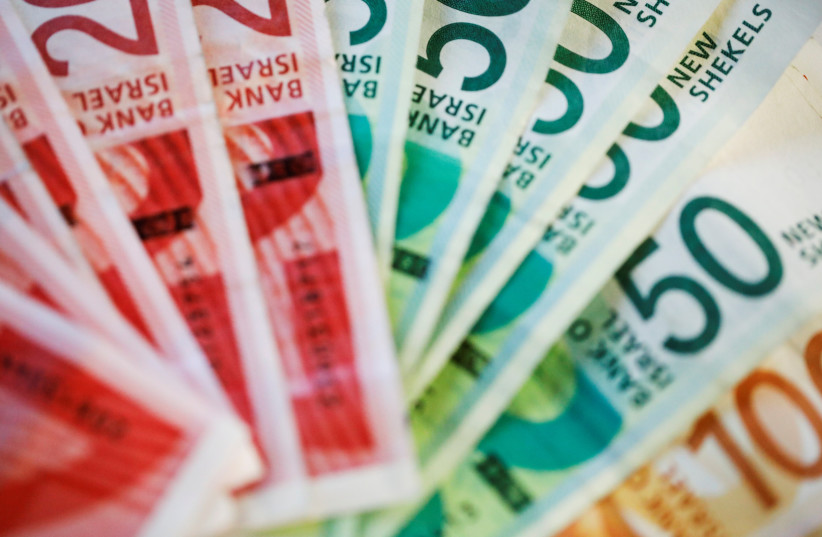Israel's inflation rate in November is expected to hit a fresh 14-year high, keeping pressure on policymakers to continue a policy of aggressive interest rate increases.
The consumer price index (CPI) ILCPIY=ECI last month was likely 5.3% higher than a year earlier, according to a Reuters poll of economists. Up from 5.1% seen in October, this would top a 5.2% rate in July and be the highest since inflation hit 5.5% in October 2008, although still lower than a 7.1% rate in the United States and 10% in the eurozone.
The range of the 10 economists polled was 5.0% to 5.5% last month.
The data will be issued on Thursday at 6.30 p.m. (1630 GMT). Economists say an expected rise of 0.1% in November over October ILCPI=ECI would reflect price gains of fuel and housing rents, partly offset by declines for clothing and fresh fruit.
Bank Hapoalim economist Victor Bahar expects the inflation rate to hit 5.4% in December, leading to another half-point of monetary tightening.

As part of a "front-loading" process, the central bank has raised its benchmark interest rate ILINR=ECI to 3.25% from 0.1% in April. That has led to public anger by mortgage holders who have seen monthly repayments spike and Bank of Israel officials saying short-term pain would keep rates lower in the near term.
Although the rate hikes have not yet filtered to prices, the central bank, which next decides on interest rates on Jan. 2, has said it expects the inflation rate to move back to within an official target range of 1-3% in late 2023.
Similarly, the Finance Ministry on Monday forecast a 2.7% inflation rate by the end of next year.
In the coming months, the CPI will be led by increases of energy prices, food and acceleration of housing rental prices.
"These factors will cease in a few months, after which inflation will be more affected by the prices of services excluding housing, following public sector wage agreements," said Bahar, who projects a 3% inflation rate next year.
Israel's budget is currently in surplus but prime minister-designate Benjamin Netanyahu has promised to freeze electricity and other costs. At the same time, he will also need to raise the salaries of civil servants waiting for new wage deals pushed off due to the pandemic, impacting inflation.
"As the deficit increases, the government will find it difficult to cut tax revenues in order to moderate price increases," Bahar said.
